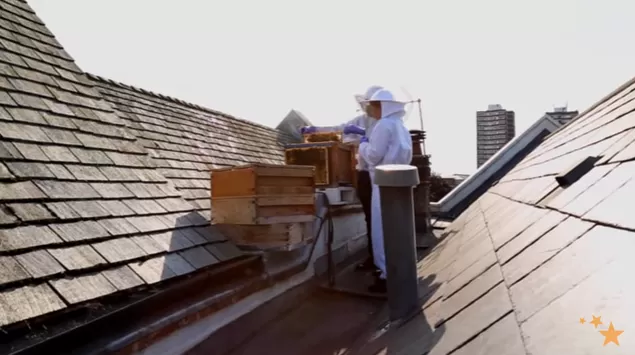Becoming an Urban Beekeeper: A Guide to Starting Your Own Apiary
Have you ever thought about becoming an urban beekeeper? The idea of tending to your own beehives, harvesting your own honey, and contributing to the health of the environment may seem like a dream come true. However, beekeeping is not just a hobby or a side project – it requires patience, preparation, and passion. In this article, we will discuss the steps you need to take to become an urban beekeeper and the benefits it can bring to both you and your community.
First and foremost, it is important to understand the significance of bees and the role they play in our ecosystem. Bees are responsible for pollinating a large portion of the world’s crops, making them essential for food production. However, in recent years, bee populations have been declining due to various factors such as pesticides, habitat loss, and disease. This is where urban beekeeping comes in – by providing a safe and healthy environment for bees to thrive, we can help to protect and support their population.
So, how does one become an urban beekeeper? The first step is to educate yourself. Attend workshops, read books, and connect with experienced beekeepers to learn about the basics of beekeeping. It is crucial to have a good understanding of the behavior and needs of bees before starting your own apiary. You can also join local beekeeping associations or clubs to gain more knowledge and support from fellow beekeepers.
Next, you need to find a suitable location for your beehives. Contrary to popular belief, you do not need a large backyard or a rural area to keep bees. Bees can thrive in urban environments as long as there is a good source of nectar and pollen nearby. Look for a spot in your garden or on your rooftop that receives plenty of sunlight and is sheltered from strong winds. It is also important to ensure that your neighbors are aware of your plans and are comfortable with having bees in the vicinity.
Once you have found a location, it is time to invest in the necessary equipment. This includes a hive, protective gear, and tools for harvesting honey. It is essential to purchase high-quality equipment to ensure the safety and well-being of your bees. You can also consider purchasing your bees from a reputable beekeeper rather than capturing a wild swarm, as this will ensure that you have a healthy and strong colony to start with.
Now comes the most crucial part – caring for your bees. Beekeeping requires dedication and regular maintenance. You will need to check on your bees every week or two to ensure that they have enough food and are not facing any health issues. You will also need to monitor and manage pests and diseases to keep your bees healthy. It is important to remember that bees are living creatures and need to be treated with care and respect.
Apart from the satisfaction of producing your own honey, urban beekeeping has numerous benefits. It can help to improve the biodiversity of your local area by providing bees with a safe and diverse food source. It can also contribute to the pollination of nearby plants, resulting in better yields for gardeners and farmers. Additionally, beekeeping can be a therapeutic and relaxing hobby, allowing you to connect with nature and disconnect from the stresses of daily life.
In conclusion, becoming an urban beekeeper requires patience, preparation, and passion. It is a rewarding and fulfilling experience that not only benefits you but also the environment and your community. So, if you have a love for nature and a desire to make a positive impact, why not take the first step towards becoming an urban beekeeper? With the right knowledge and dedication, you can turn your dream of tending to your own beehives into a reality. Remember, do it with patience, preparation, and passion – or don’t do it at all.

